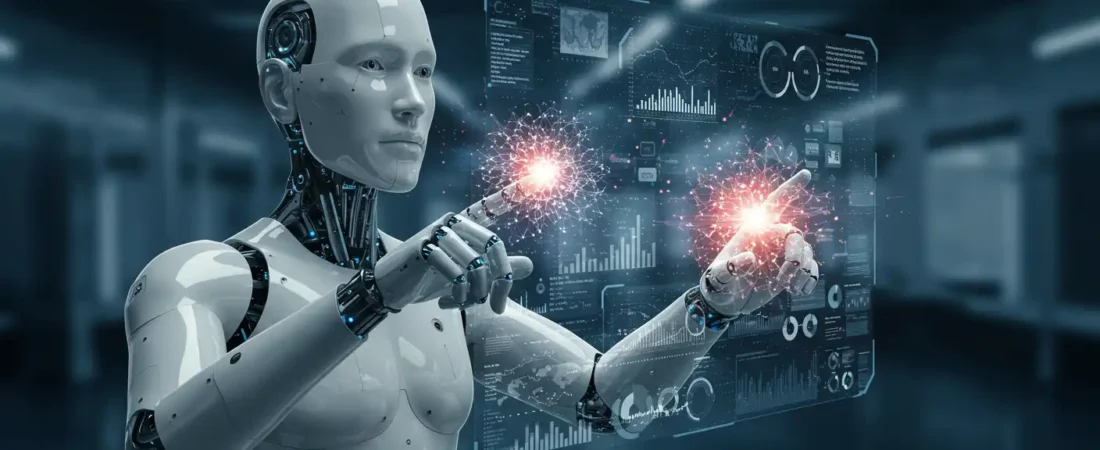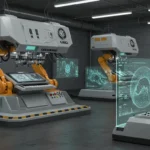The Future of Artificial Intelligence is already unfolding before our eyes, with AI assistants like ChatGPT transforming daily life. But what’s next? As we stand on the cusp of a new era, emerging technologies promise to reshape how AI assistants work, interact, and even think. In this article, we delve into the latest innovations, explore credible ChatGPT alternatives, and examine what lies ahead for AI assistants and the future of artificial intelligence.
Exploring ChatGPT Alternatives and the Future of Artificial Intelligence

In discussing the future of artificial intelligence, it’s essential to evaluate existing ChatGPT alternatives that are pushing the boundaries of AI interaction and functionality. These tools are not only filling gaps where ChatGPT may fall short, but are also introducing novel ways to engage with information and perform tasks.
Top Alternatives to ChatGPT
- Claude (Anthropic): This AI assistant is known for its ethical grounding and conversational depth. Unlike ChatGPT, Claude emphasizes safety and long-form content creation, making it ideal for content marketers and writers.
- Gemini (Google): A powerful tool with access to the real-time internet, Gemini provides up-to-date responses and integrates well with the Google ecosystem.
- DeepSeek: An open-source project aimed at enhancing reasoning and reducing bias. It’s efficient, affordable, and built for precision in technical tasks.
- Perplexity AI: Blends AI generation with search functionality, offering real-time source citations. This hybrid model is ideal for research-intensive industries.
- YouChat & Copilot: Integrated within broader platforms (You.com and Microsoft 365), these tools streamline workflow by embedding AI into everyday applications.
Implications for the Future
These alternatives demonstrate where the future of artificial intelligence is heading:
- Real-Time Awareness: AI assistants will no longer rely on static training data. Tools like Perplexity and Gemini show how real-time access can keep users updated, relevant, and informed.
- Ethics & Transparency: As AI becomes more embedded in society, there is a demand for transparency, fairness, and safety. Claude’s emphasis on alignment and safe output is a step in that direction.
- Task-Specific Optimization: Rather than trying to be good at everything, new assistants specialize in coding, design, legal tasks, and more paving the way for industry-specific dominance.
“The future of AI lies in specialization, contextual understanding, and real-time responsiveness.” – ExplodingTopics.com
Next-Generation AI Assistants: What Comes After ChatGPT?

The future of artificial intelligence will not merely iterate on what ChatGPT offers it will transform the very way humans interact with machines. We’re entering an age of autonomous agents capable of independent reasoning, task completion, and emotional intelligence.
Autonomous AI Agents
The rise of agents like AutoGPT and OpenAI’s Assistant API signals a move away from static Q&A bots. These agents perform complex, multi-step tasks without human intervention. For instance, a user can ask the assistant to book a flight, schedule meetings, and summarize documents all in one go.
This shift creates AI that’s less reactive and more proactive. These AI agents anticipate needs and offer suggestions before the user even realizes them. For businesses, this represents a major evolution in customer service, logistics, and decision-making.
Emotional Intelligence & Empathy
Researchers are now training models to detect tone, sentiment, and even facial expressions. Emotional AI, or affective computing, seeks to humanize interactions by making AI more relatable and less robotic. This trend is critical in fields like mental health, customer support, and elder care.
“AI will soon be able to understand our emotions and act accordingly, creating a truly personalized experience.” – The Verge
Seamless Multimodal Interactions
The future of AI includes assistants that can process text, voice, images, and gestures. Multimodal systems allow users to upload a photo, ask a question via voice, and receive a written summary all in seconds. This intuitive interface enhances accessibility for non-technical users and broadens adoption.
AI Assistants and the Alternative to ChatGPT in Niche Domains

General-purpose AI like ChatGPT has paved the way, but the future of artificial intelligence will see a surge in domain-specific assistants. These tools offer tailored experiences based on user needs, professional demands, and industry standards.
Medical & Health
AI is being leveraged for diagnostics, treatment planning, and mental health interventions. Tools like IBM Watson and Google’s DeepMind Health are already assisting doctors in identifying rare diseases and interpreting medical scans.
Development & Coding
GitHub Copilot and DeepSeek help developers write cleaner, more efficient code. These assistants understand context, predict bugs, and even explain complex logic saving time and reducing errors.
Education & Language Learning
AI tutors like Duolingo Max and Elsa Speak adapt lessons based on student performance. They offer personalized feedback and immersive experiences that traditional apps cannot match. As AI learns how users learn, it can guide them more efficiently.
“In niche domains, AI’s accuracy and usefulness increase dramatically, outperforming generalists like ChatGPT.” – DigitalOcean
Challenges and Ethical Implications of the Future of Artificial Intelligence

While the promise of AI is compelling, the future of artificial intelligence must be navigated responsibly. Key challenges include hallucinations, privacy breaches, algorithmic bias, and ethical accountability.
AI Hallucinations and Misinformation
Hallucinations where AI generates false or misleading content remain a pressing concern. As AI becomes more autonomous, ensuring output accuracy is critical. Mistakes in legal or medical contexts could have devastating consequences.
Privacy and Data Protection
With assistants accessing real-time data, there’s an increased risk of surveillance and data misuse. Regulatory frameworks like GDPR and CCPA aim to curb abuses, but global standardization is still lacking.
Accountability and AI Governance
Who is to blame when an AI makes a costly mistake? Developers, users, or the AI itself? These questions remain legally ambiguous. Ethical frameworks must evolve to match AI’s growing influence.
“As AI moves from tools to decision-makers, we need laws that ensure accountability and transparency.” – AlexBirkett.com
Conclusion
The future of artificial intelligence extends far beyond ChatGPT. The next generation of AI assistants will be:
- Real-time and multimodal
- Domain-specialized
- Emotionally intelligent
- Ethically and legally grounded
These emerging ChatGPT alternatives and AI agents are preparing us for a world where AI is not only a tool but a collaborator.
🚀 Stay ahead of the AI curve!
Sign up for our newsletter to get the latest updates on ChatGPT alternatives, future AI tools, and strategic implementation guides. Don’t miss your chance to master the future of artificial intelligence start your transformation today!

